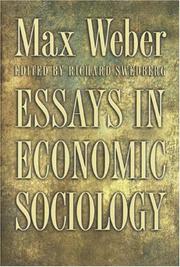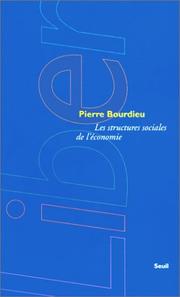| Listing 1 - 4 of 4 |
Sort by
|
Book
ISBN: 9782845341722 2845341725 Year: 2008 Publisher: Paris : Sens & Tonka,
Abstract | Keywords | Export | Availability | Bookmark
 Loading...
Loading...Choose an application
- Reference Manager
- EndNote
- RefWorks (Direct export to RefWorks)
Cet ouvrage se met en quête d'un alter-humanisme alternatif à une mondialisation économique. Hannah Arendt a montré la perte de sens opérée par la réduction de l'action politique et de l'œuvrer humain au travail industriel. Pourtant. travailler et œuvrer demeurent deux manières de faire, ce qu'Aristote appelait "poiésis". Si nous voulons retrouver le sens de cette activité, il faut repartir d'une analyse qualitative de l'activité artistique qui n'en sera que mieux distinguée de l'action politique et d'abord éthique dansa sa gratuité. Si Hannah Arendt a repris à Aristote la distinction du faire et de l'agir, de la "poiésis" et de la "praxis". elle omet de rappeler que ces deux activités tirent leur inspiration d'une troisième : la contemplation. Il n'est pas neutre, à l'heure de la technoscience de rendre par ce terme de contemplation la " noésis" irréductible à son savoir intéressé. Par-delà l'alter-mondialisme, la question du monde détourne l'attention de l'urgence de rendre à l'homme sa dignité et en particulier dans ses trois activités essentielles : " faire. agir, contempler ". La Renaissance s'est-elle contentée de renverser les valeurs, abandonnant la contemplation pour s'engouffrer dans une action réduite aux progrès de la technoscience ? N'était-elle pue plutôt en quête d'un équilibre entre les genres de vie : active et contemplative, voire de volupté ?
Sociology --- Economics --- Technology --- Sociologie --- Economie politique --- Technologie --- Arendt, Hannah, --- Economic aspects --- Sociological aspects --- Philosophy --- Sociology - Economic aspects --- Economics - Sociological aspects --- Arendt, Hannah, - 1906-1975 - Human condition
Book
ISBN: 9264168591 926411937X Year: 2012 Publisher: [Paris] : OECD,
Abstract | Keywords | Export | Availability | Bookmark
 Loading...
Loading...Choose an application
- Reference Manager
- EndNote
- RefWorks (Direct export to RefWorks)
This report aims to shed light on the role of markets and networks for knowledge-based assets. Knowledge Networks and Markets (KNMs) comprise the wide array of mechanisms and institutions facilitating the creation, exchange, dissemination and utilisation of knowledge in its multiple forms. This document provides new evidence on the knowledge-sourcing strategies of firms and their role in shaping innovation activities, according to different characteristics, and their impact on performance. It proposes a conceptual framework for understanding how KNMs support knowledge flows and the transfer of intellectual property (IP) rights, supported by a number of novel examples. It considers more specifically some developments in the market for IP rights, looking in the first instance at the evidence on the size of the market and the role of intermediaries. The role of public policies in the IP marketplace is also considered, with particular emphasis on some new forms of policy interventions such as government-sponsored patent funds. This document briefly reviews some key features of the markets and networks for knowledge originating in public research organisations, as well as the role of intermediaries such as technology transfer offices, whose role has been changing rapidly in recent years. Finally, the analysis of knowledge markets is extended to the market for knowledge embodied in highly skilled employees. The mixed impact of mobility on innovation is noted, considering in particular the use of agreements to restrict the movement of human capital and the potential implications of their enforcement. Some proposals for inclusion in a future measurement agenda are outlined.
Economics -- Sociological aspects. --- Markets -- Sociological aspects. --- Sociology -- Economic aspects. --- Markets --- Economics --- Sociology --- Sociological aspects. --- Economic aspects. --- Social theory --- Economic sociology --- Socio-economics --- Socioeconomics --- Sociology of economics --- Public markets --- Social aspects --- Social sciences --- Commerce --- Fairs --- Market towns

ISBN: 0691009066 9780691009063 Year: 1999 Publisher: Princeton Princeton University Press
Abstract | Keywords | Export | Availability | Bookmark
 Loading...
Loading...Choose an application
- Reference Manager
- EndNote
- RefWorks (Direct export to RefWorks)
Sociology --- Economics --- Economic aspects --- Sociological aspects --- 203 --- 330.08 --- DE / Germany - Duitsland - Allemagne --- Social theory --- Social sciences --- Economic sociology --- Socio-economics --- Socioeconomics --- Sociology of economics --- Sociografie. Algemene beschrijving van de gemeenschappen (Sociologie) --- Economisten --- Social aspects --- Economic schools --- Sociological aspects. --- Economic aspects. --- Sociologie --- Economie politique --- Aspect économique --- Aspect sociologique --- Sociology - Economic aspects --- Economics - Sociological aspects

ISBN: 2020412950 9782020412957 Year: 2000 Publisher: Paris : Seuil,
Abstract | Keywords | Export | Availability | Bookmark
 Loading...
Loading...Choose an application
- Reference Manager
- EndNote
- RefWorks (Direct export to RefWorks)
Sociology --- Sociologie --- Economic aspects --- Aspect économique --- Real estate business --- Housing policy --- Economics --- Social aspects --- Sociological aspects --- Val-d'Oise (France) --- AA / International- internationaal --- 321.0 --- 201 --- 339.112.12 --- 330.02 --- De staat. De maatschappijen. De maatschappelijke klassen. Algemene naslagwerken. --- Sociologie: algemeenheden. --- Grondbeleid. Beleid en problematiek van de huisvesting. --- Theorie van de economische kringloop. --- Immobilier --- Sociological aspects. --- Aspect social --- Aspect économique --- De staat. De maatschappijen. De maatschappelijke klassen. Algemene naslagwerken --- Sociologie: algemeenheden --- Grondbeleid. Beleid en problematiek van de huisvesting --- Theorie van de economische kringloop --- Real estate business - Social aspects - France - Val-d'Oise --- Housing policy - France --- Economics - Sociological aspects --- Economics - France - Sociological aspects --- Sociology - Economic aspects --- Anthropologie économique. --- Sociologie économique.
| Listing 1 - 4 of 4 |
Sort by
|

 Search
Search Feedback
Feedback About UniCat
About UniCat  Help
Help News
News